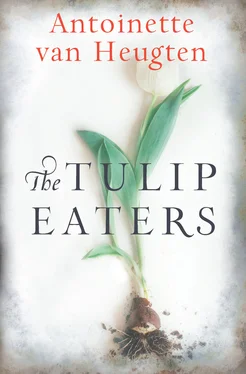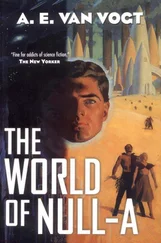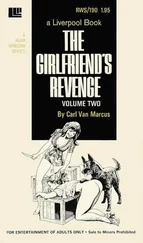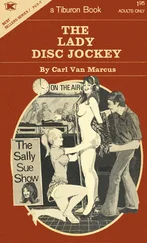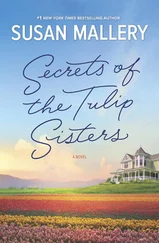In a riveting exploration of the power the past wields over the present, critically acclaimed author Antoinette van Heugten writes the story of a woman whose child’s life hangs in the balance, forcing her to confront the roots of her family’s troubled history in the dark days of World War II…
It’s the stuff of nightmares: Nora de Jong returns home from work one ordinary day to find her mother has been murdered. Her infant daughter is missing. And the only clue is the body of an unknown man on the living-room floor, clutching a Luger in his cold, dead hand.
Frantic to find Rose, Nora puts aside her grief and frustration with the local police to start her own search. But the contents of a locked metal box she finds in her parents’ attic leave her with as many questions as answers—and suggest the killer was not a stranger. Saving her daughter means delving deeper into her family’s darkest history, leading Nora half a world away to Amsterdam, where her own unsettled past and memories of painful heartbreak rush back to haunt her.
As Nora feverishly pieces together the truth from an old family diary, she’s drawn back to a city under Nazi occupation, where her mother’s alliances may have long ago sealed her own—and Rose’s—fate.
The Tulip
Eaters
Antoinette Van Heugten

www.mirabooks.co.uk
This novel is dedicated to my parents, Frans and Lony van Heugten, who fought in the Dutch resistance during World War II.
In their early twenties, they risked their lives for what they believed in. Their spirit and courage has inspired me in every endeavor.
They will always be my heroes.
Contents
PREFACE PREFACE We have no milk, no bread, no potatoes—just rotten peels. The boys now have to go far into the fields to pull frozen tulip bulbs from the ground. We grind the pulp and make thin soup and watery porridges from them. They are bitter, practically inedible, but we choke them down because otherwise we will starve. —Anonymous Dutch housewife, circa 1944 During the Hongerwinter in 1944, a railway strike was ordered by the exiled Dutch government to further Allied liberation efforts. The Germans retaliated by placing an embargo on all food transports. Gas and electricity were cut off during one of the harshest winters in history. Potatoes and vegetables were long gone. There was no meat, milk, butter, coffee or sugar and not enough bread to feed one person, let alone a family. There was only one thing left to them in the barren fields. Tulips. Four and a half million people were affected by the famine. Over 20,000 starved to death. This represents the nadir of the war—Dutchmen forced to forage and choke down their national flower to stave off starvation. It is one of the great ironies of the Dutch occupation.
CHAPTER 1
CHAPTER 2
CHAPTER 3
CHAPTER 4
CHAPTER 5
CHAPTER 6
CHAPTER 7
CHAPTER 8
CHAPTER 9
CHAPTER 10
CHAPTER 11
CHAPTER 12
CHAPTER 13
CHAPTER 14
CHAPTER 15
CHAPTER 16
CHAPTER 17
CHAPTER 18
CHAPTER 19
CHAPTER 20
CHAPTER 21
CHAPTER 22
CHAPTER 23
CHAPTER 24
CHAPTER 25
CHAPTER 26
CHAPTER 27
CHAPTER 28
CHAPTER 29
CHAPTER 30
CHAPTER 31
CHAPTER 32
CHAPTER 33
CHAPTER 34
CHAPTER 35
CHAPTER 36
CHAPTER 37
CHAPTER 38
CHAPTER 39
CHAPTER 40
CHAPTER 41
CHAPTER 42
CHAPTER 43
CHAPTER 44
CHAPTER 45
CHAPTER 46
CHAPTER 47
CHAPTER 48
CHAPTER 49
CHAPTER 50
CHAPTER 51
CHAPTER 52
CHAPTER 53
CHAPTER 54
CHAPTER 55
CHAPTER 56
CHAPTER 57
CHAPTER 58
CHAPTER 59
CHAPTER 60
CHAPTER 61
CHAPTER 62
CHAPTER 63
CHAPTER 64
CHAPTER 65
CHAPTER 66
CHAPTER 67
CHAPTER 68
CHAPTER 69
CHAPTER 70
CHAPTER 71
EPILOGUE
ACKNOWLEDGMENTS
EXCERPT
PREFACE
We have no milk, no bread, no potatoes—just rotten peels. The boys now have to go far into the fields to pull frozen tulip bulbs from the ground. We grind the pulp and make thin soup and watery porridges from them. They are bitter, practically inedible, but we choke them down because otherwise we will starve.
—Anonymous Dutch housewife, circa 1944
During the Hongerwinter in 1944, a railway strike was ordered by the exiled Dutch government to further Allied liberation efforts. The Germans retaliated by placing an embargo on all food transports. Gas and electricity were cut off during one of the harshest winters in history. Potatoes and vegetables were long gone. There was no meat, milk, butter, coffee or sugar and not enough bread to feed one person, let alone a family. There was only one thing left to them in the barren fields.
Tulips.
Four and a half million people were affected by the famine. Over 20,000 starved to death. This represents the nadir of the war—Dutchmen forced to forage and choke down their national flower to stave off starvation. It is one of the great ironies of the Dutch occupation.
1
November, 1980
Nora balanced the grocery bag on one hip and inserted her key into the lock of the door leading from the garage into the house. This was the best moment of every day. Rose. Her beautiful baby—almost six months now. Every little thing she did was a revelation. How she raised her tiny hand to Nora’s face as she held her. How her wide eyes, the deepest of blues, reacted to the slightest change of tenor in Nora’s voice. How the warmth of her small body nestled into Nora’s when she took her into her arms. When she held Rose, Nora didn’t know where her own body ended and her daughter’s began.
“Mom?” she called. No response, but that was normal. This was usually when her mother put Rose into her tiny, ruffled bathing suit and swirled her around in the pool. Moving back from Amsterdam to live with her mother had been a blessing. The thought of Anneke and Rose at home playing while she worked filled her with gratitude—and today was no exception. Contentment warmed her as she thought of the love she and Anneke shared in caring for Rose. Grandmother, mother and child. Life was perfect.
Nora shifted the groceries higher onto her hip and glanced at the pile of mail on the entryway table. Nothing interesting. The newspaper lay open. She scanned the headlines. Iranian Phantoms and F-5 Tiger IIs Attack Iraqi Airfields Near Basra. Nora shook her head. It was already 1980. Would the Middle East ever right itself? Her eyes flicked down the page. Los Angeles, Comedian Richard Pryor Badly Burned Freebasing Cocaine. Big surprise, she thought.
She looked through the living room window and caught a shimmer of water from the pool. Joy flooded her. She would take the groceries into the kitchen and then put on her bathing suit. She couldn’t wait to hold Rose in her arms. Every evening it felt the same—as if she had been gone for days. That first touch of baby skin revived her spirit, calmed her soul.
She stepped into the living room, still holding the groceries. She heard them crash to the floor and then her own scream. “Mom!”
Anneke lay prostrate on the thick white carpet, her beautiful hazel eyes gaping at the ceiling, a single bullet hole through her forehead.
“No!” screamed Nora. She ran into the living room, fell to her knees and feverishly searched for a pulse. Her fingers pressed again and again into the soft skin of her mother’s neck, but there was nothing, nothing! Darkness exploded within her as she stared into Anneke’s vacant eyes. Nora’s heart leaped when she heard ragged breathing, until she realized that it was her own. “Oh, God, Mom!” she moaned.
Читать дальше
